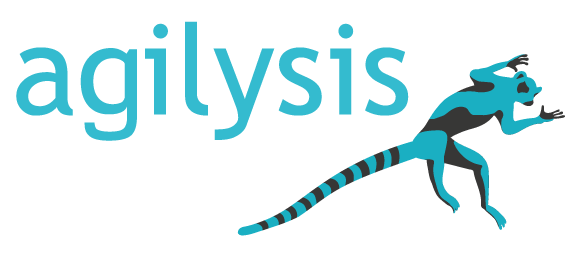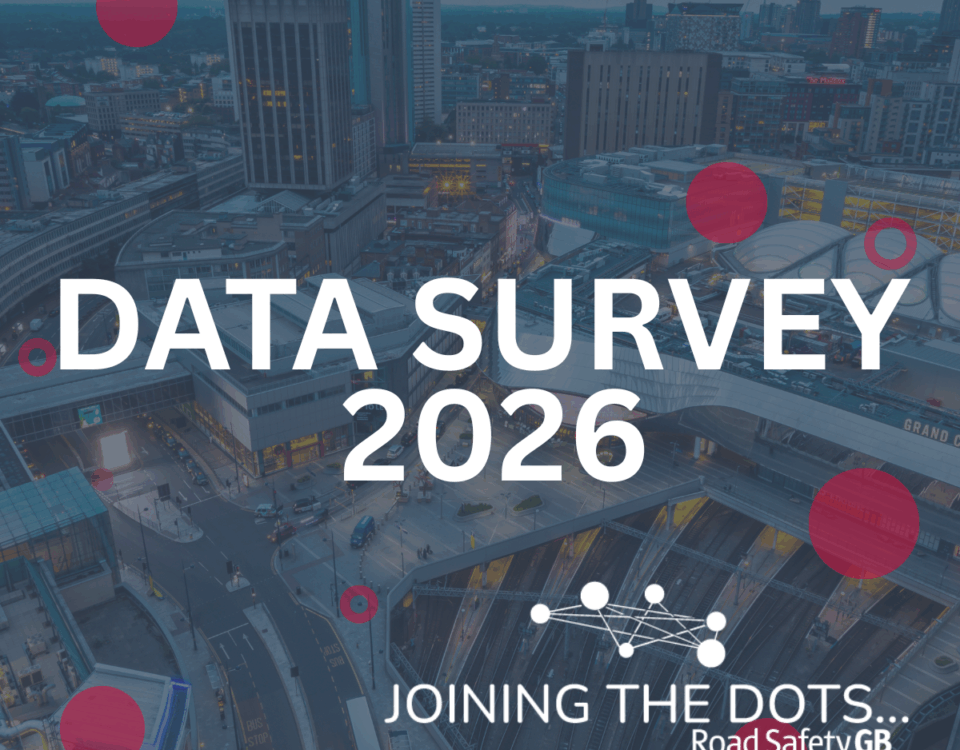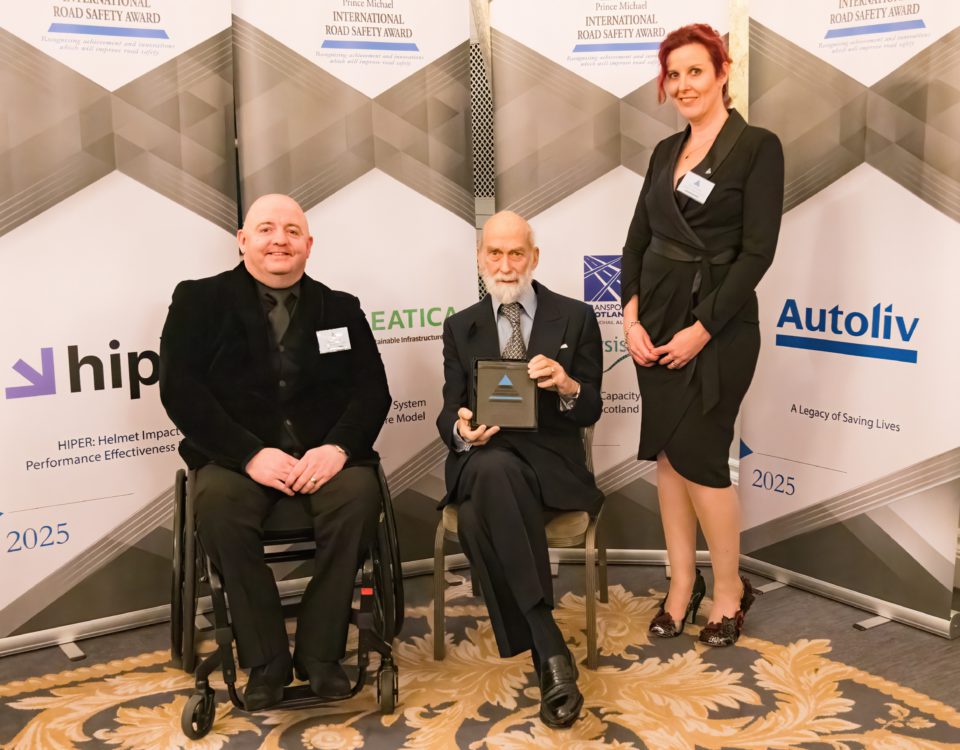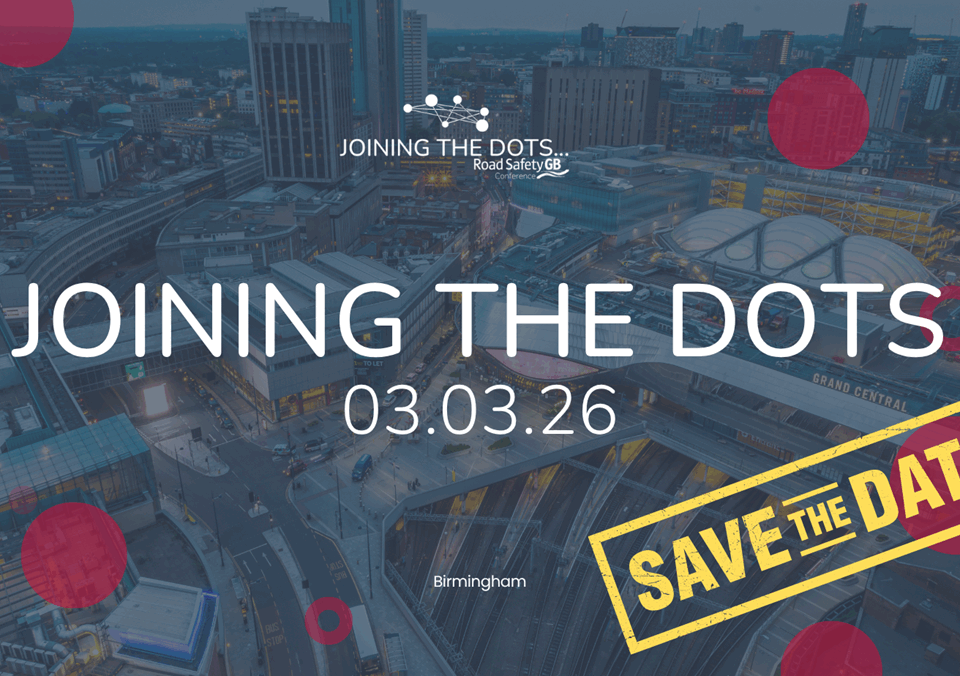
Blog By:
Matt Staton
Head of Consultancy
Who do you go to when you want change on your street - your councillor, your MP, your mayor? For most of us, the answer is "I have no idea." And that’s the root of the problem. There is the occasional leaflet through the letterbox to promote an issue, the social media post advertising a consultation or even sometimes a knock on the door. But community engagement in road safety is about far more than consultation - it requires simplifying governance, enabling shared ownership, and redefining the role of professionals in a complex system.
As someone who has spent a large portion of my career in local government, community engagement is something that is important to me. That’s why, when asked to speak recently at a Parliamentary Advisory Council for Transport Safety Council of Members meeting in the House of Commons about the road safety partnership landscape, I spent a portion of my time on the importance of community ownership and engagement in a future road safety strategy. It is something campaign groups and communities are crying out for, as evidenced in recent Parliamentary debates on road safety. But it is something that Localism/devolution has failed to deliver when it comes to road safety, whilst at the same time removing the central control professionals need to coordinate effectively.
Too many layers
One of the reasons I don’t think it has worked is the complexity of the local political landscape. Let me use my own area as an example (it may be one of the most complex but it serves my point). I live in a town with a town council who I elect representatives for. That town is within a district council area that I also elect representatives for. The district is within a county council area that I also elect representatives for. The county is within a Mayoral combined authority area with an elected Mayor. Oh, and I also elect a Police and Crime Commissioner for the area, and an MP as my representative in Parliament.
If you are totally confused, I completely understand. To most people I speak to, the above are combined into “the Council”, “the Police” or “the Government”, with little to no appreciation for how functions are divided between them. And this is the problem. Each organisation operates independently, and engages communities separately, in some cases to argue against each other along political lines. Is that really the community engagement and ownership people want? It certainly isn’t in my view, and it isn’t what is reflected in recent Parliamentary debates on road safety.
If I have an issue, who out of the six political representatives do I go to (I say six to reflect the organisations but in practice for town, district and county there is more than one representative for my area)? How is my voice heard?
It only takes one "no"
Ok, so the politics is complicated but surely in practice the delivery is easier and there are clear roles and responsibilities.
Let’s use speed as an example, and if I wanted to approach my representatives about introducing an area-wide 20mph limit in the part of town where I live. This is a large residential area with two primary schools, a few local shops, a park, sports club and train station, basically lots of trip generators and the houses people will be making those trips from. To make this happen this is what I might need from my representatives:
- the Town Council would need to be persuaded to put forward a highway improvement bid to the County Council and part fund the scheme
- the District Council would need to support the bid and could also provide part funding
- the County Council would need to support and approve the bid and implement a scheme, funding the remainder
- the Police would need to support the scheme
It would also help if the Mayor and local MP were supportive (and at least not opposed) and of course the MP could also make representation in Parliament and with the Department for Transport in relation to the national restricted roads speed limit.
If any one of those representatives are opposed to introducing 20mph in this area then its chances of happening are pretty slim. This becomes even harder when those representatives belong to three (or even four!) different political parties, each with conflicting views on road transport. Is that supporting local communities? Of course, not everyone in my community would agree that 20mph should be introduced. But, it provides a good example of how the number of political organisations creates a problem when they are likely to take different views from an ideological standpoint, and this removes the ownership from the community. Unless, of course, the views of the community and the politics of all six organisations happen to align (oh look, a flying pig!).
'Us' vs. 'Them'
Of course, when communities want something and it can't be done for whatever reason (often money but also sometimes because it isn't a good idea) it is the professionals who get the blame. This has been a shift I have noticed develop over the last decade or so. An 'us' and 'them'. The people who want to get stuff done and those who get in the way. In 2016, Michael Gove famously said: "Britain has had enough of experts." Whether you agree with that or not, I think that period in time, from the Brexit campaigns through to the pandemic, increasingly strained professional, political and community relationships. And now is time to break that and bring people back together.
Quotes from road safety debates, January 2025 [Source: Hansard: House of Commons 07/01/25 - Road Safety; Westminster Hall debate 28/01/25 - Road Safety: Young Drivers; Westminster Hall debate 29/01/25 - Road Safety: Schools]
The image above shows a selection of quotes regarding community engagement from three debates on road safety that took place in Parliament earlier this year. The importance of engaging communities in road safety was a recurring theme, even though the specific topics were different. One, in particular, highlighted the opportunity presented by devolution and local government reorganisation:
"I feel that devolution and local government reorganisation create a huge opportunity to ensure new levels of co-operation between authorities, and we should have no hard borders when it comes to road safety.”
This focuses on the opportunities from the creation of new, combined authority areas, such as the recently established Greater Lincolnshire Combined County Authority. In principle not a bad idea, but my own example above should tell a cautionary tale of devolution adding an additional layer and further alienating communities.
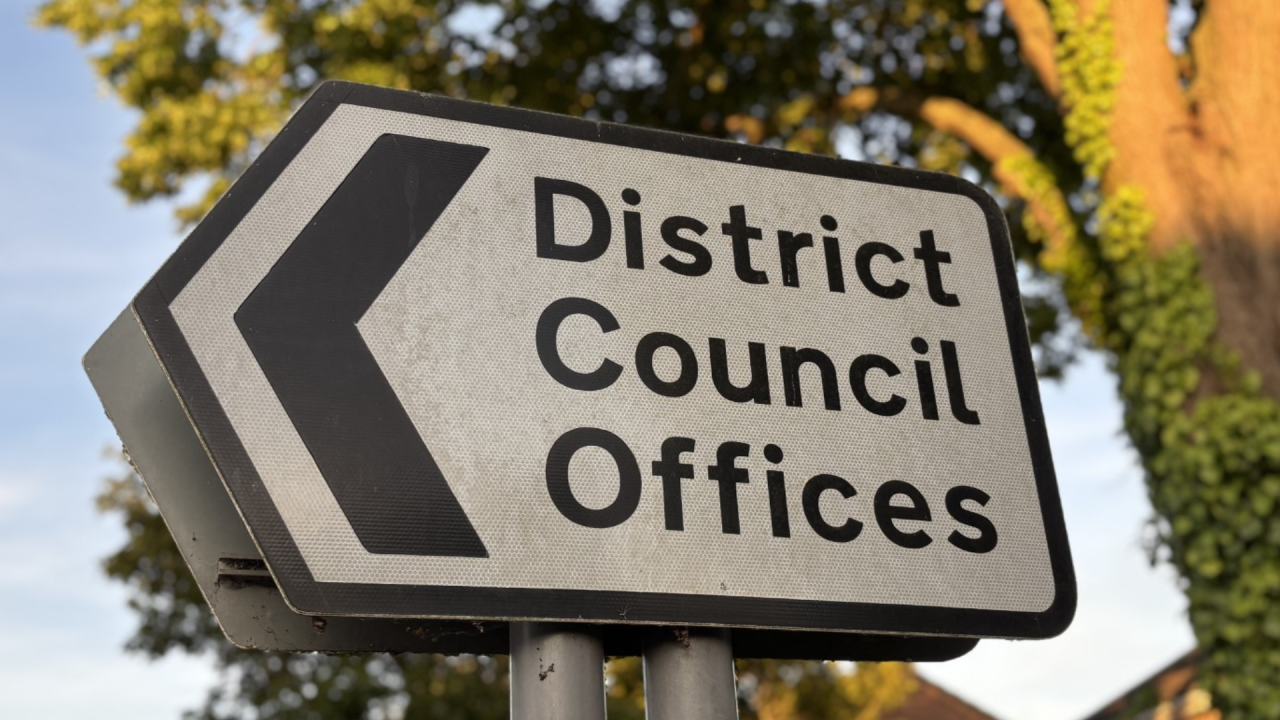
To embed real change, though, this isn't just about politics. It is about how we, as professionals, engage with politics and local communities. In the Parliamentary debates, the perception that professionals used data to obstruct delivery of interventions communities want was raised. This was particularly in relation to collision data and the question around "how many people have to die before something happens?" Now, having been the person responding to complaints or proposals from communities in one of my previous roles, I know how challenging it is when there are too many locations to intervene at, so some sort of triage system needs to be in place. And it needs to be objective. But I can also see the other side, that the triage appears detached and cold, and often, if there is enough pressure put on local politicians, some things will go ahead anyway. When this happens one of the issues is often that the focus turns to specific solutions rather than the best way to solve the problems, and the professionals are then seen to be obstructing the specific solution the community has set its heart on and campaigned on. We are now in 'us' and 'them' territory, with no escape because the professionals are seen to have been saying "no" to everything - even if that's only because nothing realistic has been put forward.
A "Community-Led, Evidence-Informed, Safe System"
So how do we break it? One suggestion in the Parliamentary debates was a "community-led, evidence-informed, Safe System approach." A nice sound bite, but how could that look in practice?
Community-led: the important thing for communities is that policy and interventions solve the problems they are facing. The objective, desk-based assessment used so widely in highway authorities to identify problems and 'tell' communities where intervention is planned is clearly creating a division between the community and professionals. Therefore, there needs to be a way for communities to identify and put forward the problems that are important to them and/or to be involved in prioritising them. This is more than a consultation once options are designed, but that is still important later in the process.
Evidence-informed: the evidence, therefore, is about ensuring communities are well informed about the risks and are given clear, concise information if they are engaged in prioritising the problems to be solved. This could involve tools like CrashMap.co.uk that provide mapped data on collisions and can be filtered by type, or interactive risk maps like rsfmaps.agilysis.co.uk that allow for comparison between route sections. Even more important is that evidence is used to develop the most effective solutions to the problems identified.
Safe System: one specific principle of the Safe System is particularly important here: shared responsibility. This is often discussed in the context of a shift in focus away from individual road user errors as the cause of collisions and responsibilities being shared between designers of the system as well as those who use it. It’s easy to maintain this view if we concentrate on individual aspects of the system. But the system as a whole is a part of our society. It is how we get around. It is a construct of decades (centuries even) of iteration between people and decision-makers. The very reason interventions happen when there is a groundswell of public pressure is because people matter. So what if we think about shared responsibility in the Safe System as a mandate for co-production, a way to embed shared ownership and affect societal change in transport and road safety. Working with communities from the start to understand the problems and find the right solutions, rather than a detached backwards and forwards that only frustrates everyone involved.
Challenges and Shifts for Professionals
The role of the professional in this approach becomes slightly different. My own research and experience working in highway authorities has identified three potential challenges and how they could be overcome in this approach.
Populist -> Professional
First, it is very easy to fall into the trap of bowing to popular demand and the (often minority) views of those who shout loudest. Professionals have an important ethical role in this space to ensure engagement from a cross-section of the community, not just those who shout loudest, and to ensure the evidence is presented to them in an accessible way. Community leaders come in many forms, not just the democratically elected, so it is important to understand the affected communities and listen. It is impossible to please everyone, but it isn't impossible to take a wide range of views into account.
Protectionist -> Partnership
Second, it is very easy to focus on organisational or self-interests. When resources are squeezed there is often a move to protect one's own resources rather than consider how the collective resource can be greater than the sum of its individual parts. To do this there is the need to relinquish some control. Transport professionals don’t need to do everything, but they need to be able to inform those who will influence communities. For example, in one of my previous roles a parish council set up their own transport group, engaged the local school, the local businesses and wanted to deliver a whole range of interventions. They didn’t need me to come along and do all that for them, or for a road safety officer to go and do a school visit, and especially not for me to add another layer of governance. What they did need was guidance on the most effective things to do with the energy, enthusiasm and resources they had managed to muster. They wanted off-the-shelf resources or ideas they could take to the local school for the children to do. They needed data to support where the best places to do Speedwatch were, or to narrow down the long list of issues they had collated into a realistic action list with the resources they had available. I maybe had enough resource in the team to give them a couple of days a year. They had the resource to do a couple of days a week if they wanted to - they just needed enough support to know what to spend that time doing.
Purist -> Pragmatic
Relinquishing control is linked to the third challenge: seeking perfection. As professionals, particularly anyone with a research background, it is very easy to focus on what should be done 'in an ideal world'. Unfortunately, we don't live in an ideal world so we can't let perfect be the enemy of good. Or even in some cases we can't let good be the enemy of satisfactory. However, as professionals we do have an ethical duty to ensure we do no harm. A good example of this is the use of fear appeals. In my career I have lost count of the number of well-meaning people who have sought to highlight the traumatic consequences of road traffic collisions as a means to try and change the behaviour of young people (early in my career I may even have been one of those people). However, there is overwhelming evidence that, unless in very specific circumstances and under the careful design of behavioural experts, at best they make little to no difference, and at worst they increase the chances of the audience being harmed.
Therefore, in engaging more with communities, the collection of evidence (data and research) and the role of evaluation become an even more important part of the professional role. We need to translate research into practical solutions to our communities' problems, guide them in implementing them (where they can) and help them demonstrate and understand the impact of what has been implemented.
To achieve a step-change in road safety, engaging with communities is essential, and a "community-led, evidence-informed, Safe System approach" is something to aspire to. Community engagement must be more than a tick-box - it's the bedrock of effective road safety. If we want fewer deaths, better systems, and stronger communities, we must simplify governance, share responsibility, and start listening.
